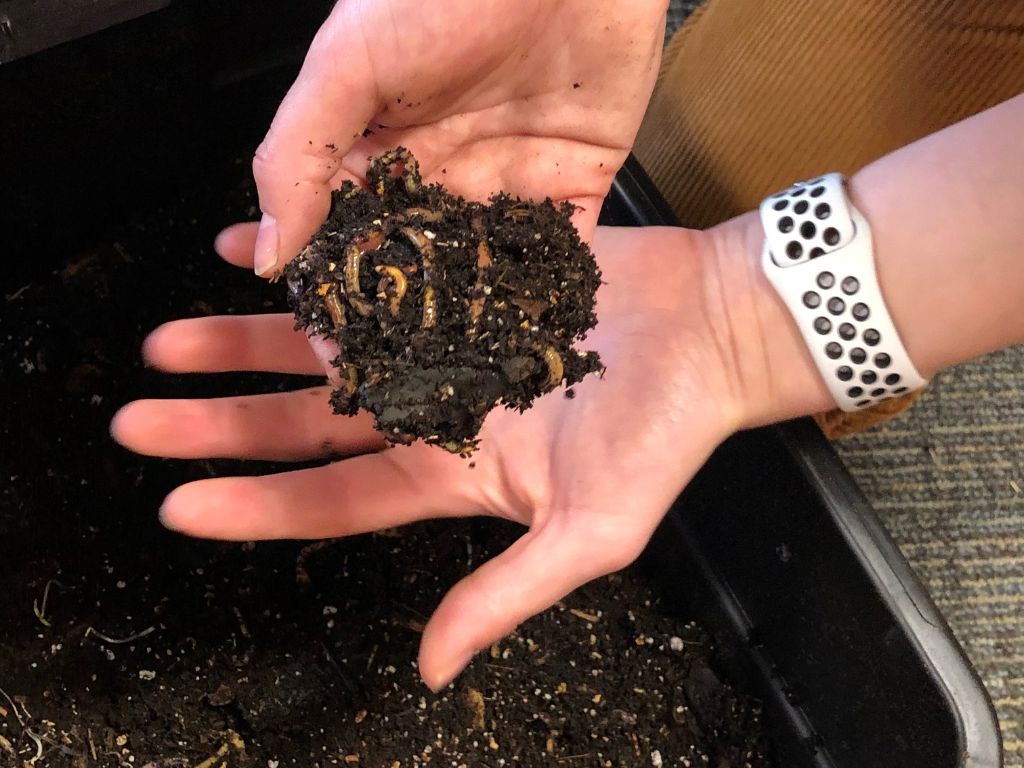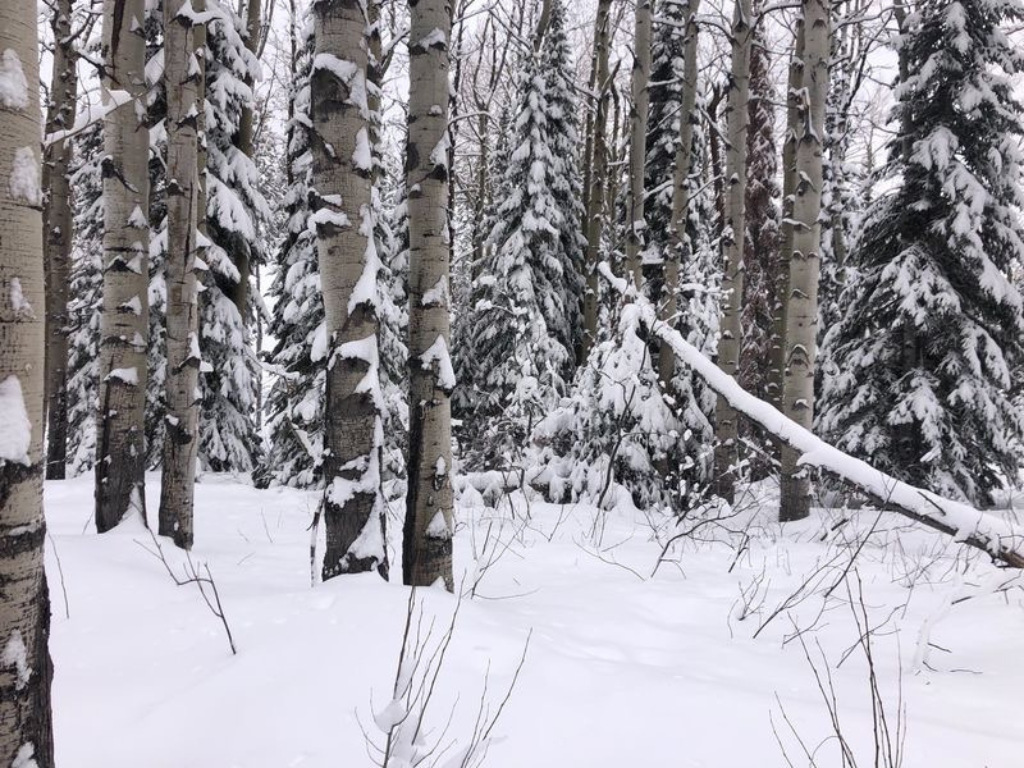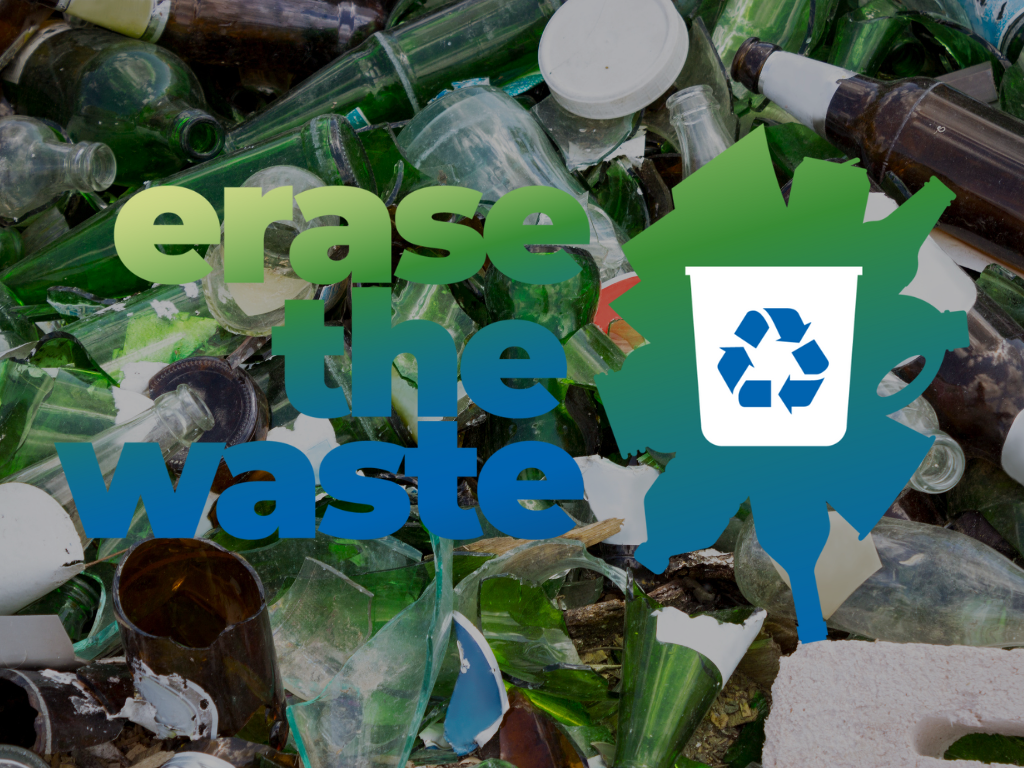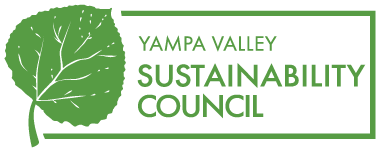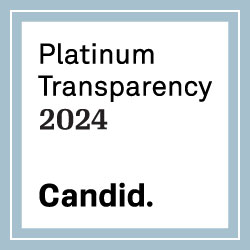Winn Cowman, Waste Diversion Director, & Michelle Stewart, Executive Director | March 13, 2022
As seen in Steamboat Pilot & Today
The Routt County Climate Action Plan set an ambitious goal of achieving 46% waste diverted from landfills by 2030. Strategies like reusing, recycling and composting keeps materials from being 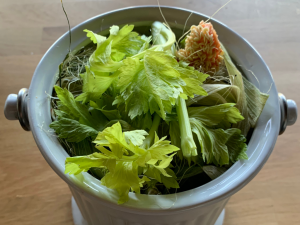 landfilled where they generate methane, a highly potent greenhouse gas.
landfilled where they generate methane, a highly potent greenhouse gas.
According to the recent City of Steamboat Springs Recycling Study, the City’s current waste diversion rate is only 9%, where only 9% of materials discarded are recycled or composted. This places the City among the lowest in Colorado, which is recognized as one of the 20 most wasteful states in the US. The national waste diversion rate is around 32%, with Colorado averaging 15%.
If we as a community want to achieve our Climate Action Plan goals, the City needs to increase waste diversion fivefold in eight years. Such a magnitude of change requires all of us – businesses, organizations, citizens and tourists – to rethink our waste systems and take action to reduce, reuse and lastly recycle.
Organic waste is the largest material, by weight, in our system. Nearly 30% of the waste we send to landfills is organic, and mostly food waste. When organics are landfilled, they decompose anaerobically, producing methane. Methane, a powerful greenhouse gas, is 86 times more effective than carbon dioxide at trapping heat in the atmosphere over a 20-year period. This makes it particularly essential to address in the short term.
Reducing food waste is an important step that all of us can take. Many of us buy more food than we need at markets, let fruits and vegetables spoil at home or take larger portions than we can eat. When we waste food, the labor and resources (water, seeds, feed, etc.) that go into producing it, and the energy and emissions from transporting and processing it, are also wasted.
Maybe you’ll find easy, impactful ways to reduce food waste in your daily routine: Do you buy salad greens that just end up in the waste bin? Do you have take-out food that goes to waste? Try buying frozen vegetables or grains that can be stored. Rather than throwing away leftovers, freeze them for an easy weeknight meal. To reduce take-out food waste, try smaller portions, or sharing.
Recycling food waste by composting is another action we can take to keep organics from being landfilled. Composting is an aerobic process (avoids methane production) that turns organic matter, such as yard waste and food scraps, into a nutrient rich material that is used to improve soil health in gardens and landscapes.
In 2020, the Organics Recycling Task Force — an ad-hoc committee under YVSC created in 2019 to support implementation of the Routt County Waste Diversion Strategic Plan – made much needed headway in community composting in Routt County. They supported the creation of a compost business that has evolved into two options for businesses and residents to choose from when considering compost services. To learn more about the growing operations, contact Cowgirl Compost CO or Twin Enviro.
Reducing and recycling organic waste are timely and impactful ways each of us can step forward, together, on our Climate Action Plan. If you or your business want to learn more about composting or join the Organics Recycling Task Force, contact Winn Cowman, YVSC’s Waste Diversion Director, at winn.cowman@yvsc.org.


